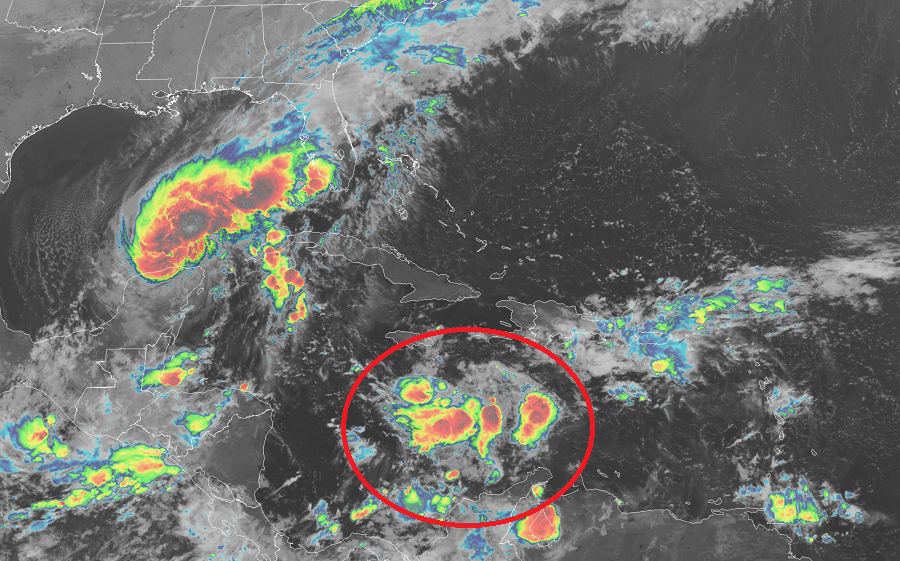
While Tropical Storm Gamma continues to drench the Yucatan Peninsula in Mexico as it spins in the central Gulf of Mexico, additional attention is being spent on a new system in the Caribbean Sea. Over time, that second system could develop into a tropical cyclone as it approaches the Gulf of Mexico too. Should the tropical cyclone form and become strong enough to become a tropical storm, it would be named Delta.
The system in question is a tropical wave accompanied by a small low pressure system over the central Caribbean Sea a couple of hundred miles southeast of Jamaica. Although the associated shower and thunderstorm activity is currently disorganized, the National Hurricane Center says environmental conditions are expected to gradually become conducive for development, and a tropical depression is likely to form during the next couple of days. The system should move west-northwestward at about 15 mph across the central and western Caribbean Sea today and Monday, and then move into the southern or southeastern Gulf of Mexico on Tuesday and Wednesday. Locally heavy rainfall and gusty winds will be possible across portions of Hispaniola, Jamaica, Cuba, and the Cayman Islands during the next few days, and the National Hurricane Center says interests on those islands should monitor the progress of this disturbance.
The National Hurricane Center believes there’s a 60% chance that this will develop into a tropical cyclone over the next 48 hours; those odds increase to 80% over the next five days.
While it is too soon to say where this system will go over time, it is possible this could impact the United States Gulf Coast.
Because the list of typical storm names has been exhausted this year, the National Hurricane Center will use letters from the Greek alphabet moving forward. Beyond Gamma would be Delta, Epsilon and Zeta. There has never been a storm beyond Zeta on record in the Atlantic basin. It is too soon to tell whether that’ll happen this year: the hurricane season continues to run through to the end of November.